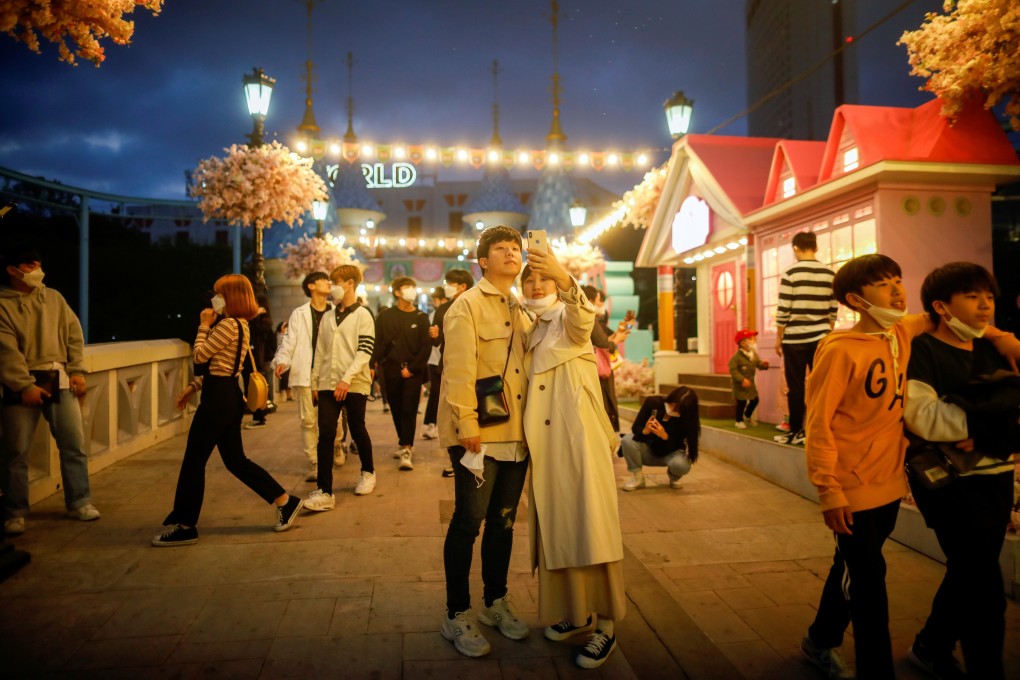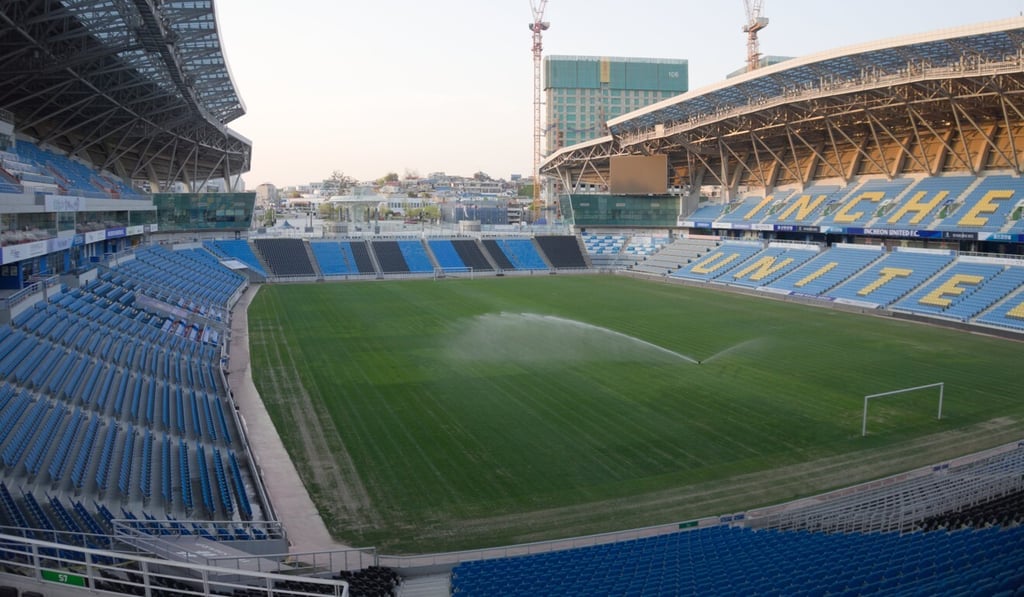Advertisement
South Korea is easing its coronavirus clampdown, but is it jumping the gun?
- On Thursday, South Korea reported no new domestic coronavirus cases for the first time since February – and imported cases in the single digits
- But health experts, and ordinary citizens, are worried easing social distancing measures might fuel a surge in cases as people return to their daily lives
Reading Time:4 minutes
Why you can trust SCMP

It has been almost two months since Incheon United FC were supposed to play their first match of the season.
But in that time, South Korea – once the epicentre of the first major outbreak of coronavirus outside China – has stabilised its infection rate to the point that the country’s professional soccer teams like Incheon United can play again, albeit to an empty stadium.
“Fans were ecstatic when they heard the announcement, even if they’ll have to wait a little longer to actually watch the matches inside the stadium,” said Jih Won-ik, a social media manager with the club’s external communications team.
Advertisement
“We might get the go-ahead from the government to open games with 10 per cent or 20 per cent of the maximum audience capacity of 20,000 in the near future.”

Advertisement
On Thursday, South Korea reported no new domestic coronavirus cases for the first time since February and has largely managed to bring the outbreak within its borders under control. A massive campaign of testing and intensive contact tracing has led to fewer than 11,000 infections and less than 300 deaths in the 15 weeks since its first case was announced on January 20.
Advertisement
Select Voice
Select Speed
1.00x